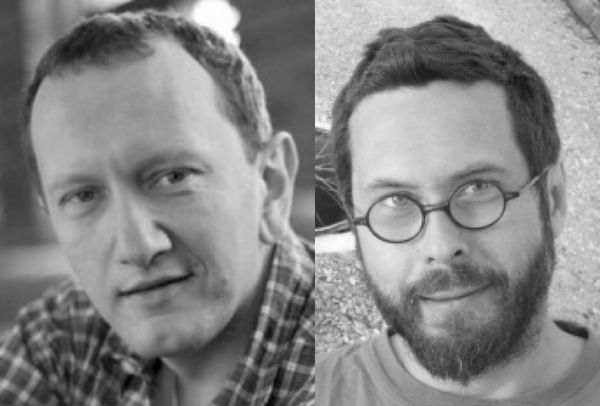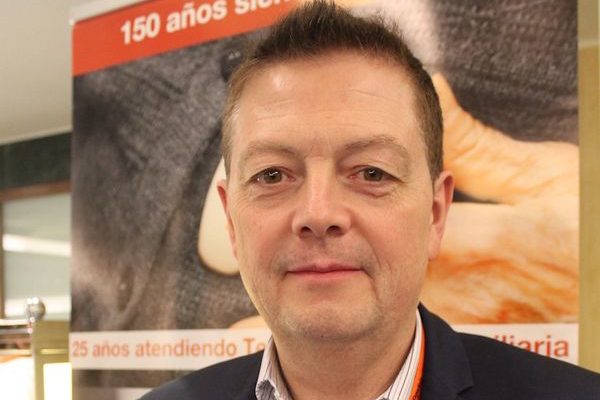
Expert View: Why fundraising teams should be values-led
September 20, 2017
How to mobilise support through digital channels
December 6, 2017While the professional fundraising market in Spain has become increasingly dynamic, there is an urgent need to increase donations to match up to growing demand for charitable services. Fundraising Europe interviews Jaime Gregori Soler, President of the Spanish Fundraising Association (Asociación Española de Fundraising), about how the marketplace is changing and the work of the Association in helping to address the need to increase funds and support professional development.
[Fundraising Europe] What are the biggest challenges currently facing the fundraising sector in Spain?
[Jaime Gregori Soler] There are two main challenges facing fundraisers in Spain at the moment. We urgently need to grow donations, accelerating the growth of the donor market so that it increases at the same pace as the demand for sector services. However, we also have to ensure that fundraising is always done in an orderly way and with self-regulatory measures in place for relevant catchment channels, such as face-to-face.
In short, we have to consolidate the strong growth that we have had with measures that deepen the ethics, the transparency and ensure long-term sustainability of the sector.
What is the Spanish Fundraising Association doing to help nonprofits address these challenges?
While Spanish NGOs are generally well respected and transparent about the way they do things, we believe that having the right level of regulation and ethics is important and that we can still improve. We’ve been working hard to promote self-regulatory initiatives across the profession and to lobby for a more positive environment for charitable giving, including for improvements in how donations are taxed.
At the moment, donors can claim tax relief on 75% of the value of charitable donations, up to a maximum of €150, but we believe that government could increase this limit to €500. For companies, an increase in tax relief from 40% to 60% of the amount donated would be an important incentive to encourage corporate donations.
A real priority for us now is to build the public’s understanding of charities and promote the work of fundraisers, so that the public is encouraged to collaborate with nonprofit entities in Spain to help grow donations. This is an important challenge for us. If we can get this right, we will be in a far better place to increase giving.
Within the sector, we’re also working hard to increase our training provision for fundraisers, growing our networks and offering guidance for practitioners.
Is fundraising widely recognised as a profession nationally?
The fundraising profession is relatively young here in Spain, so we have a lot of work to do to build understanding outside the sector.
In recent years, the profession has advanced a lot and there are now specific fundraising roles in all medium and large NGOs. This is something that the Spanish Fundraising Association has contributed to in an important way already. Still, much more must be done if we are to increase public recognition of the profession.
How easy is it to attract people into the profession?
We have an increasingly dynamic professional market for fundraisers and there are many people who are keen to work professionally and raise money for good causes. But the truth is, fundraising is a hard job and often requires people with a very determined profile. This means that there is often a lot of rotation, especially in the lower levels of the profession.
What opportunities are available for fundraisers to learn and develop?
There is a wide range of training available for fundraisers; introductory training, university courses and the annual fundraising congress organised by the association. We’re now looking to further improve and diversify the training on offer and make it more widely available across the different regions of Spain.
This is so important because good training isn’t just about helping fundraisers to do their jobs well, but defining the basis for good fundraising and creating a culture of shared ethical behaviour.
Having recently become President of the Association, what are your main goals for the organisation?
The Spanish Fundraising Association must deepen what it does already, that is to be the referent in Spain on fundraising for nonprofit organisations, professionals, government and specialist service suppliers.
However, we can also represent other shared needs (non-fundraising) for the sector, and this might include providing guidance and support for communication and marketing activity, as well as building public awareness of broader NGO issues.
About Jaime Gregori Soler
With over 17 years of fundraising experience, Jaime is the Director of Fundraising at the Spanish Red Cross and President of the Asociación Española de Fundraising (Spanish Fundraising Association).



